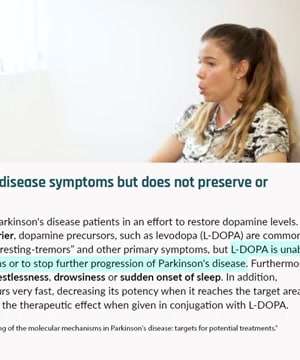Importance of exercise for Parkinson's?
Sources:
Exercise plays a crucial role in managing Parkinson's disease. Dr. Giselle Petzinger, a neurologist, emphasizes that exercise should be considered an essential part of treatment, accounting for about 50% of it alongside medication 1. Here are some critical benefits and insights:
-
Improves Cognitive Functions: Exercise can enhance cognitive functions affected by Parkinson's, including executive function and global cognition 2.
-
Promotes Neuroplasticity: Intensive exercise can increase the expression of dopamine receptors. For example, eight weeks of intensive treadmill training boosted dopamine receptors in the basal ganglia of Parkinson's patients by 80-90% 3.
-
Reduces Disease Progression: Regular high-intensity exercise has been shown to halt disease progression in some patients. One study highlighted no progression in patients who exercised regularly for six months, compared to a 15% worsening in non-exercisers 3.
-
Aids in Symptom Management: Exercise helps manage motor symptoms like slowness and stiffness, making physical movement more manageable and accurate 1.
-
Enhances Brain Resilience: Engaging in exercise activates resilient pathways in the brain, aiding in maintaining and repairing neuronal connections damaged by Parkinson's and other stresses like aging 4.
-
Supports Medication: Exercise complements medication such as levodopa by improving the overall practice of movements and helping with the better uptake and regulation of dopamine in the brain 1 5.
However, it is important to note that while exercise is highly beneficial, it does not replace dopamine treatments such as levodopa, which are essential for managing Parkinson's related dopamine depletion and ensuring effective exercise outcomes 1.
RELATED QUESTIONS-



